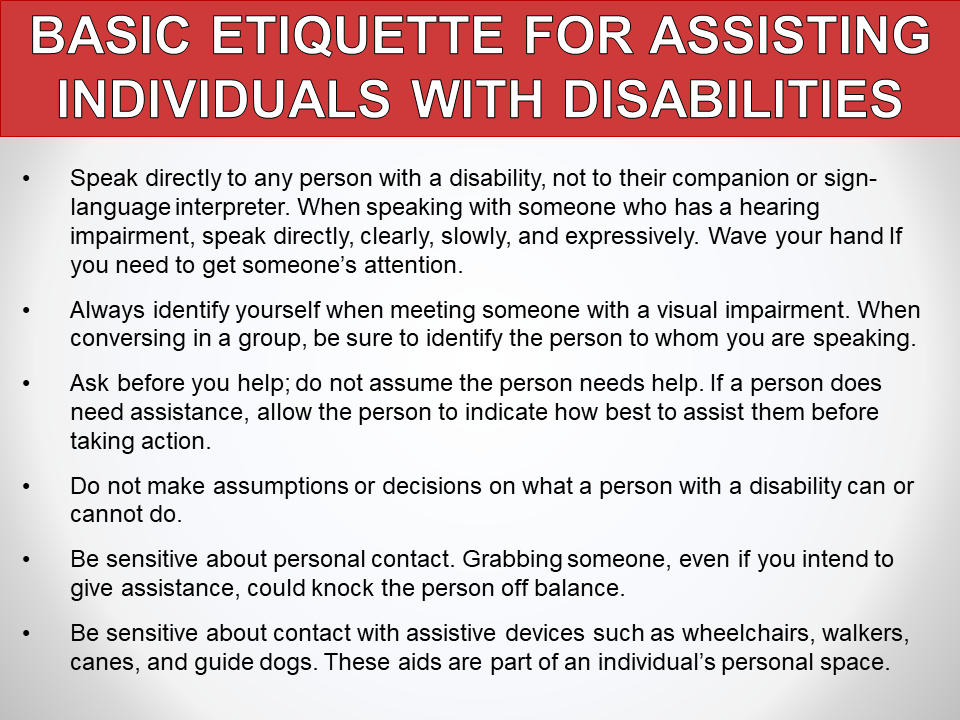
OVERVIEW: Assisting individuals with disabilities
This is basic etiquette for assisting individuals with disabilities. Speak directly to any person with a disability, not to their companion or sign-language interpreter. When speaking with someone who has a hearing impairment, speak directly, clearly, slowly, and expressively. Wave your hand If you need to get someone's attention. Always identify yourself when meeting someone with a visual impairment. When conversing in a group, be sure to identify the person to whom you are speaking. Ask before you help; do not assume the person needs help. If a person does need assistance, allow the person to indicate how best to assist them before taking action. Do not make assumptions or decisions on what a person with a disability can or cannot do. Be sensitive about personal contact. Grabbing someone, even if you intend to give assistance, could knock the person off balance. Be sensitive about contact with assistive devices such as wheelchairs, walkers, canes, and guide dogs. These aids are part of an individual's personal space.